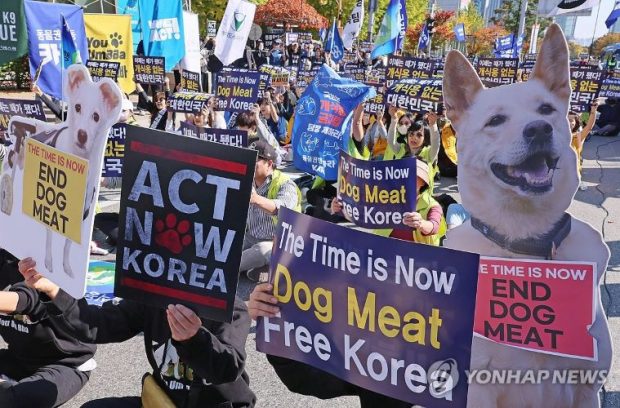
South Korea’s National Assembly passes ban on dog meat consumption

SEOUL: The National Assembly passed a special bill banning dog meat consumption Tuesday, paving the way for ending the practice that has fallen out of favor in recent decades.
The bill, which bans the breeding, butchering, distributing and selling of dogs for meat, passed through the parliament with 208 votes in favor and 2 abstentions.
The ruling People Power Party (PPP) and the main opposition Democratic Party (DP) have jointly pushed for the ban amid growing awareness of animal rights and an increasing number of pet owners in the country.
The bill also calls for providing subsidies to help people in the dog meat industry switch jobs.
First lady Kim Keon Hee has also openly expressed her support for the ban, saying outlawing the practice was one of President Yoon Suk Yeol’s presidential campaign promises.
Yoon and Kim are known as pet lovers, and live with four dogs and three cats.
Law enforcement is slated to begin in 2027, after a three-year grace period, and violators could face a maximum two years of prison sentence or a fine of up to 30 million won (US$22,768).
According to government statistics, there are around 1,150 dog farms, 34 butchering businesses, 219 distributors and approximately 1,600 restaurants that sell food made with dog meat in South Korea.
Animal rights groups immediately welcomed the ban.
“We believe this ban marks a significant turning point in South Korea’s attitude to animal protection,” said Lee Sang-kyung, a spokesperson for the local branch of the Humane Society International, an animal rights group. “(This) is testament to the passion and determination of our animal-loving public and politicians who reached a tipping point to consign this outdated industry to our history books.”
YONHAP


